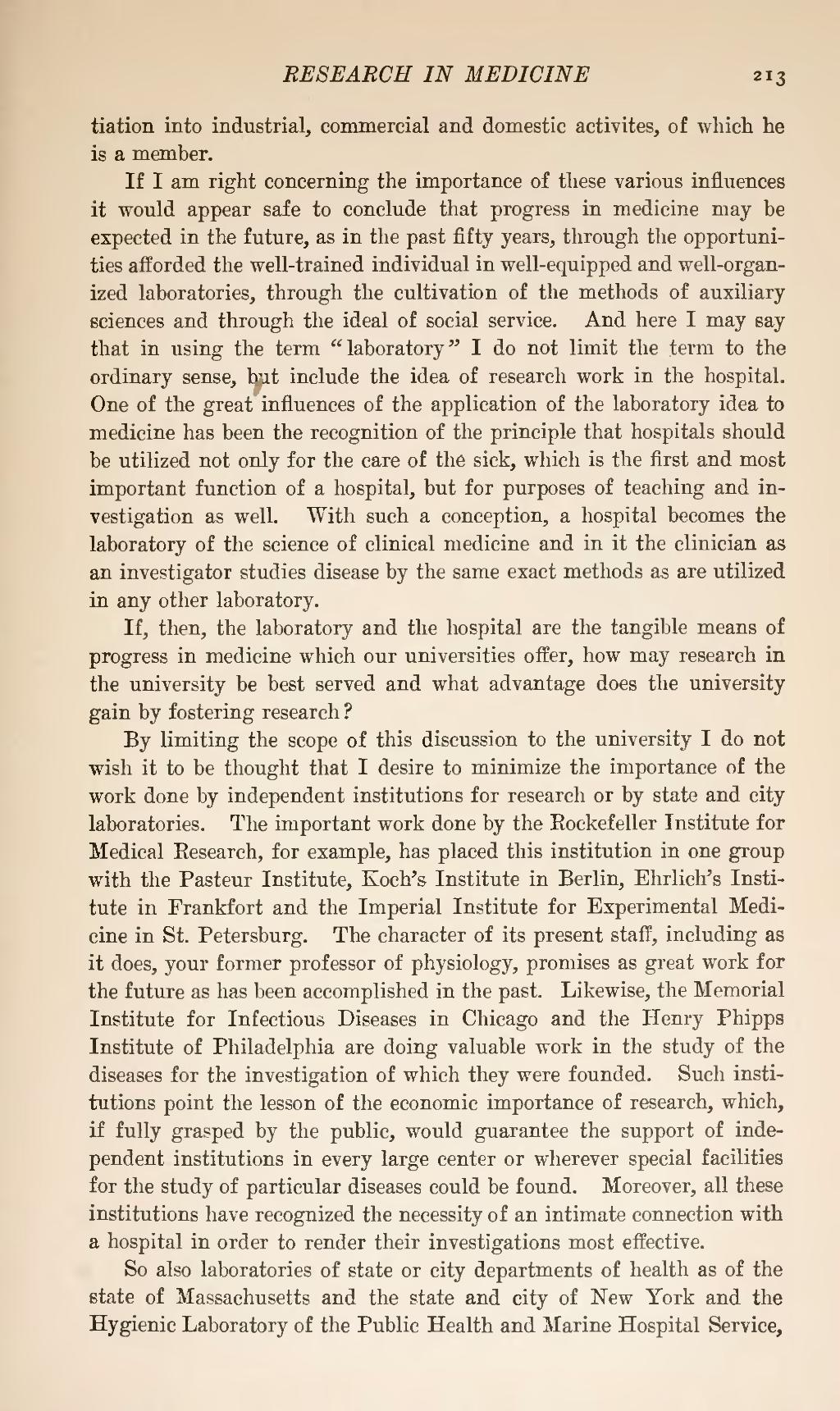tiation into industrial, commercial and domestic activites, of which he is a member.
If I am right concerning the importance of these various influences it would appear safe to conclude that progress in medicine may be expected in the future, as in the past fifty years, through the opportunities afforded the well-trained individual in well-equipped and well-organized laboratories, through the cultivation of the methods of auxiliary sciences and through the ideal of social service. And here I may say that in using the term "laboratory" I do not limit the term to the ordinary sense, but include the idea of research work in the hospital. One of the great influences of the application of the laboratory idea to medicine has been the recognition of the principle that hospitals should be utilized not only for the care of the sick, which is the first and most important function of a hospital, but for purposes of teaching and investigation as well. With such a conception, a hospital becomes the laboratory of the science of clinical medicine and in it the clinician as an investigator studies disease by the same exact methods as are utilized in any other laboratory.
If, then, the laboratory and the hospital are the tangible means of progress in medicine which our universities offer, how may research in the university be best served and what advantage does the university gain by fostering research?
By limiting the scope of this discussion to the university I do not wish it to be thought that I desire to minimize the importance of the work done by independent institutions for research or by state and city laboratories. The important work done by the Rockefeller Institute for Medical Research, for example, has placed this institution in one group with the Pasteur Institute, Koch's Institute in Berlin, Ehrlich's Institute in Frankfort and the Imperial Institute for Experimental Medicine in St. Petersburg. The character of its present staff, including as it does, your former professor of physiology, promises as great work for the future as has been accomplished in the past. Likewise, the Memorial Institute for Infectious Diseases in Chicago and the Henry Phipps Institute of Philadelphia are doing valuable work in the study of the diseases for the investigation of which they were founded. Such institutions point the lesson of the economic importance of research, which, if fully grasped by the public, would guarantee the support of independent institutions in every large center or wherever special facilities for the study of particular diseases could be found. Moreover, all these institutions have recognized the necessity of an intimate connection with a hospital in order to render their investigations most effective.
So also laboratories of state or city departments of health as of the state of Massachusetts and the state and city of New York and the Hygienic Laboratory of the Public Health and Marine Hospital Service,

